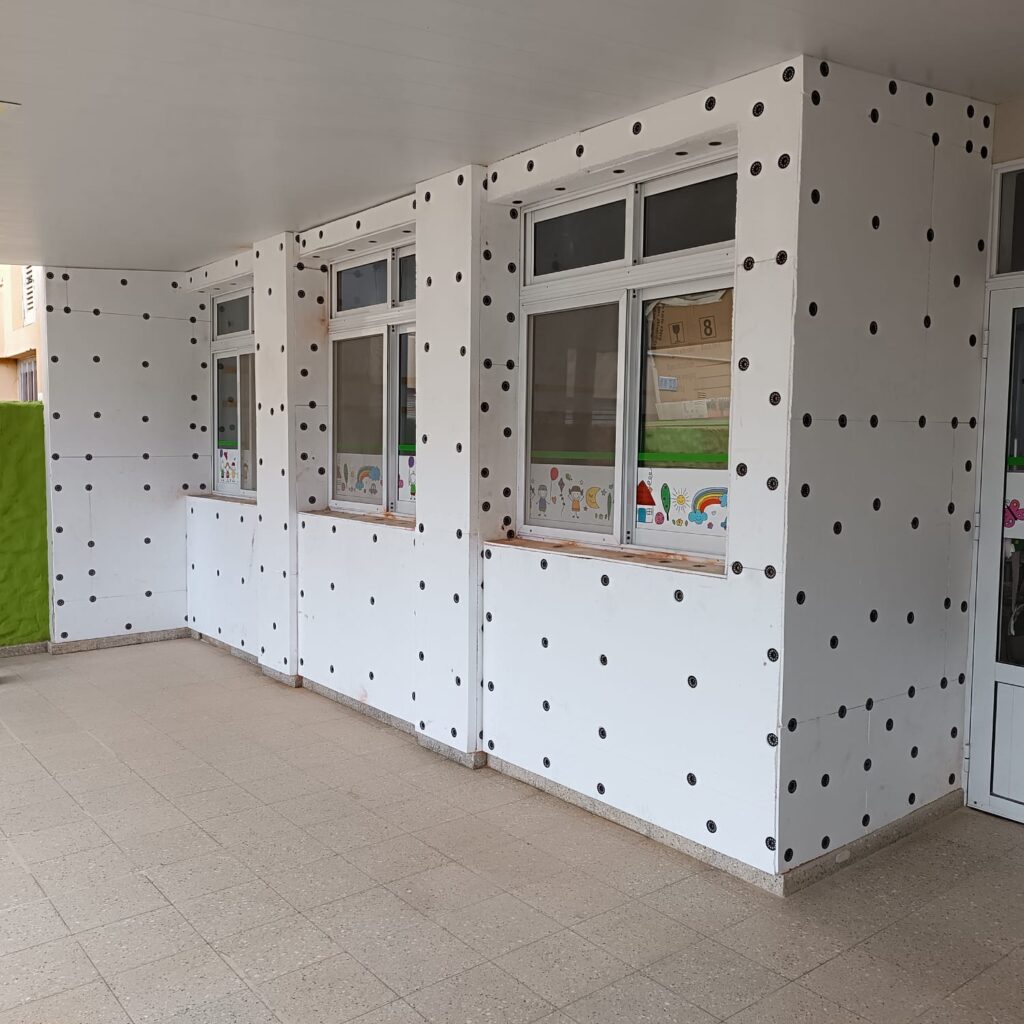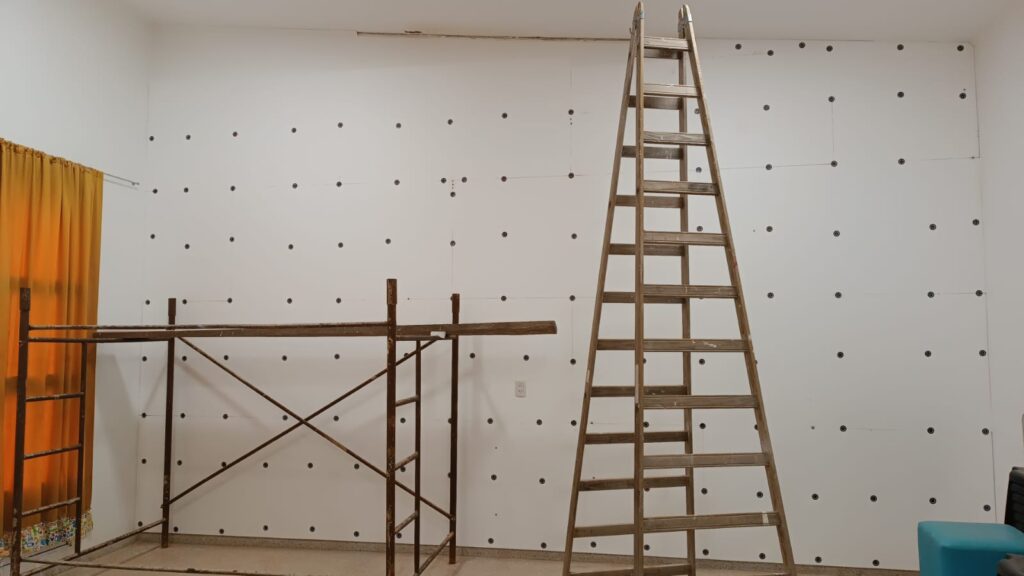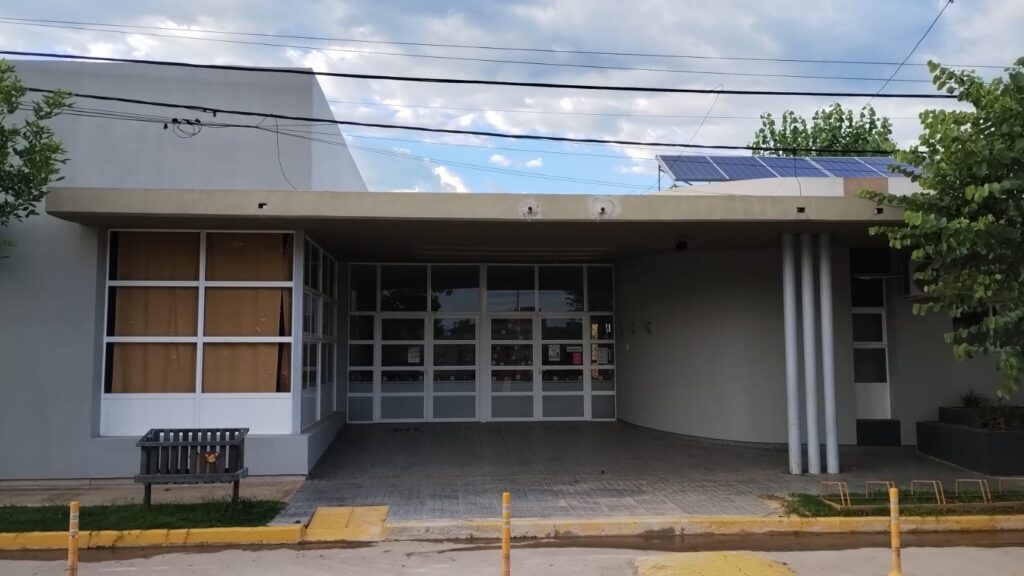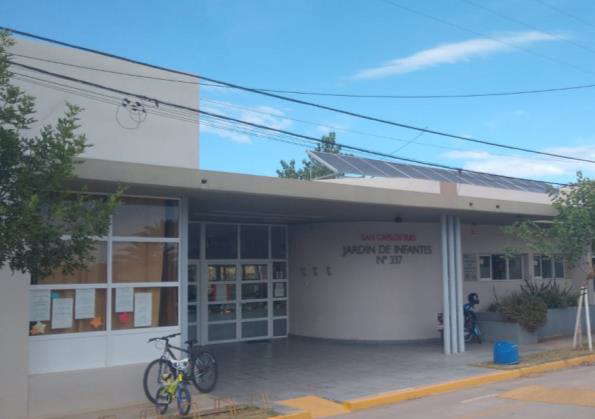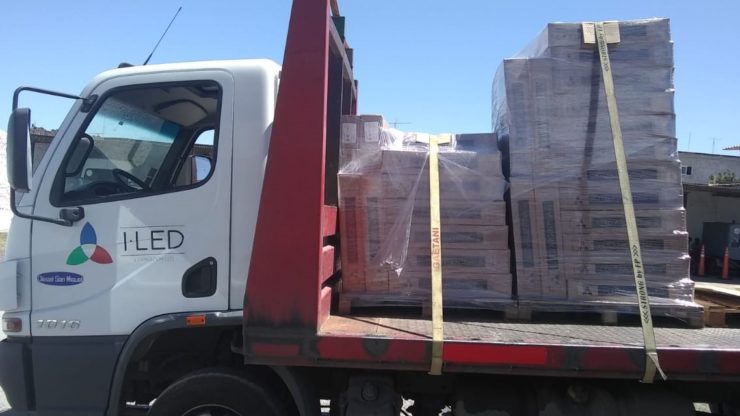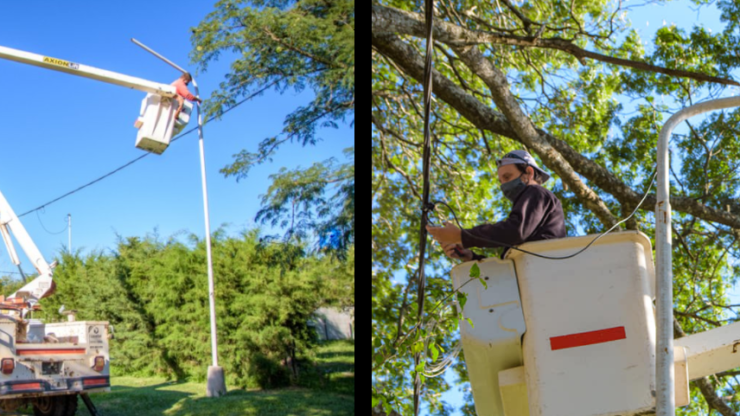In Argentina, the first stage of renovating municipal buildings for increased energy efficiency has been has completed as part of the Sustainable Energy in Municipal Buildings project.
Sustainable Energy in Municipal Buildings works directly with 13 provinces and 32 municipalities in Argentina to catalyze energy efficiency on a local level by creating programmes and support mechanisms for local authorities to develop, finance, and implement energy-efficient public policies.
Based on capacity building and data analysis at local and national levels, the first phase included renovations of four municipal buildings, with a second phase about to start which includes another four buildings. These phases will form the basis for expanding energy efficiency renovations of public buildings in Argentina.
Cutting energy use in half
One of the buildings renovated is a kindergarten in San Carlos Sud, where retrofitted insulation now reduces energy consumption by 45% and improves comfort for the children and adults using the building.
Another renovation was carried out in the Santa Fe province, where the roof of a local medical clinic was thermally insulated, significantly improving the quality of the roof, providing better thermal insulation and reducing the building’s energy demand for air conditioning.
Overall, the renovations are expected to deliver substantial energy savings, with estimates ranging between 45% and 56%.
Climate action at the local level
The Sustainable Energy in Municipal Buildings initiative implements concrete strategies to address climate change and the energy crisis at the local level.
Specifically it works to improve the energy efficiency of municipal buildings and strengthen the management capacities of municipalities with the purpose of incorporating climate action into the agenda of local governments.
Behind the initiative is a consortium of partners, including the National University of La Plata, the Argentine Network of Municipalities against Climate Change (RAMCC), and the UNEP Copenhagen Climate Centre. The programme receives funding from the European Euroclima+ program, with support from the French development agency, AFD.
Picking the low-hanging fruit
The energy efficiency renovations are based on energy audits and design, carried by out National University of La Plata as part of the initiative.
The Sustainable Energy in Municipal Buildings initiative also includes a thorough mapping of funding resources, making replication and scaling of the projects easier.
This means that more Argentinian municipalities will be able to cash in on the opportunity to save significant sums through investment in public buildings, picking up the benefits of energy efficiency as a low-hanging fruit of climate action.
